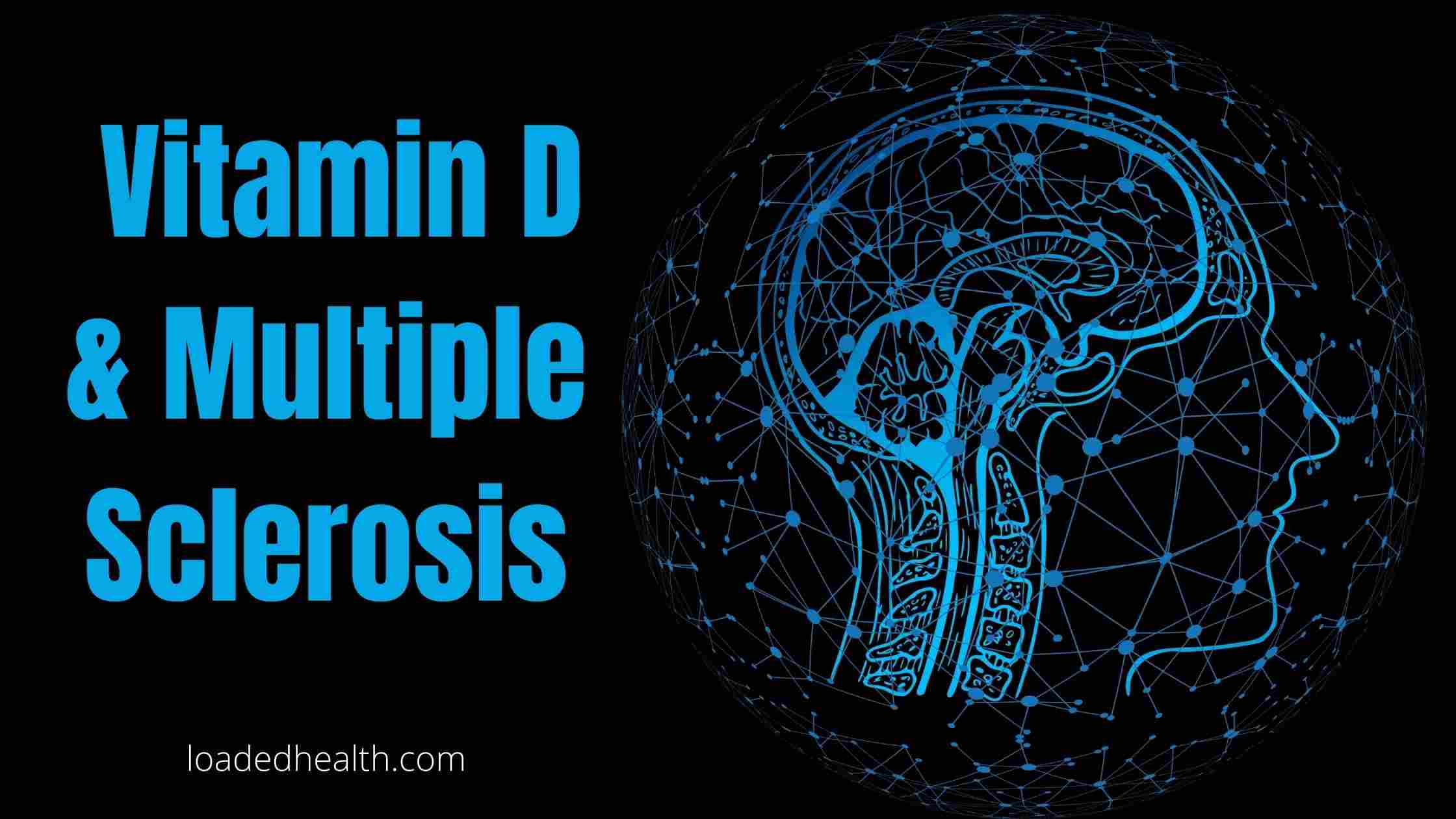Did you know the deficiency of Vitamin D and multiple sclerosis are related directly to each other and have a strong association?
Most people are aware of the effects of Vitamin D on bones. But, it also has beneficial effects on other organs of the body. Many types of research are being done to progressively discover the major actions of this vitamin as well as identify the links between different diseases including multiple sclerosis (MS).
This Article Contains
What is Vitamin D and How To Get It?
Vitamin D is a fat-soluble vitamin that helps regulate calcium metabolism and is found in various natural sources including fatty fish (tuna, mackerel, and salmon), eggs, beef liver, dairy products, soy milk, orange juice, cereals, and oatmeal.
Vitamin D is also synthesized in the skin from direct sunlight exposure. Most people in the United States should be able to get the vitamin D needed from sunlight in late March/early April to the end of September.
Functions of Vitamin D
Vitamin D promotes calcium absorption in the gut and maintains adequate calcium and phosphate levels in the blood. This enables normal bone mineralization which helps with bone growth and strength. Other functions include reducing inflammation. Some studies have concluded that vitamin D may have properties that strengthen the immune system and may have a role in the regeneration of the coating that protects the nerve cells (myelin).
Vitamin D Deficiency
Without sufficient vitamin D, bones can become thin and weak and can lead to rickets in children and osteomalacia / osteoporosis in adults.
Additional signs include:
- Fatigue and tiredness
- Bone and back pain
- Muscle pain
- Hair loss
- Poor wound healing
- Recurrent infections
- Depression
Recommended Daily Allowance (RDA)
According to the Institute of Medicine, the recommended dosage of vitamin D in adults is between 600-800 international units (IUs) of vitamin D a day for adults. The recommendation for women who are pregnant or breastfeeding is 600 IUs per day.
However, the Institute of Medicine also recommends avoiding taking more than 4,000 IUs a day. Taking too much Vitamin D can have toxic effects on multiple organs like the kidney and heart.
Note: Consult your doctor before taking vitamin D supplementation.
What is Multiple Sclerosis?
Multiple sclerosis (MS) is an autoimmune disease which means the body’s immune system attacks the coating of nerves in the brain and spinal cord. This coating is made of a fatty protein called myelin that insulates the nerves and helps them send signals that control movement and other functions.
Inflammation caused by the attack on the immune system causes interference with these electrical signals causing the signs and symptoms seen in MS. Before talking about the relation of Vitamin D and multiple sclerosis, let’s discuss a few other things about MS.
CAUSES AND RISK FACTORS
Multiple sclerosis is most commonly seen in women between the ages of 20 to 30 years. Women are two to three times more commonly affected compared to men. Causes are still unknown, but according to some studies it is said to be due to environmental, immunologic, and genetic factors.
Risk factors include:
- Genetic factors: More frequently seen in patients of affected family members
- Environmental factors: Locations (places far from the equator where there is little sun all year round), cold climates, urbanized lifestyle, reduced sunlight exposure
- Low vitamin D levels
- Smoking
- Viral infections such as those caused by Epstein-Barr Virus (EBV)
SIGNS AND SYMPTOMS OF MULTIPLE SCLEROSIS
Signs and symptoms for multiple sclerosis can present insidiously or suddenly. One of the initial signs includes one-sided muscle weakness with numbness and sensory loss. Some patients initially present with the sudden loss of vision in one eye often with pain when moving eyes (optic neuritis).
As the disease progresses, patients may experience disturbing signs like loss of bowel and bladder control, constipation, double vision, dizziness, tremors, and leg stiffness which can impair their ability to walk and maintain balance.
Symptoms of multiple sclerosis can increase by increasing body temperature (hot bath, exercise). Patients present with flares that are usually followed by full or partial recovery. Memory loss, personality changes, exaggerated changes in mood, anxiety, and depression may be seen in advanced disease.
Relation Between Deficiency of Vitamin D and Multiple Sclerosis
Many studies have suggested a strong relation in the general population to the location (countries farther away from the equator), exposure to the sun, vitamin D status, and the risk of multiple sclerosis.
How Sun Exposure Affects The Development of Multiple Sclerosis?
Several recent studies found that increasing sunlight exposure leads to a decreased chance of getting deficiency of vitamin D and multiple sclerosis overall risk and severity.
Studies have also shown that sun exposure during childhood and adolescence as well as maternal sunlight exposure during pregnancy have an association with the risk of MS. According to some studies, low vitamin D levels have been associated with higher relapse rates but no evidence proves this at the moment.
Can Past Viral Infections Be a Cause of Multiple Sclerosis?
In people with past infections with certain viruses like Epstein-Barr virus, Vitamin D deficiency or smoking can activate the immune system. This triggers the disease caused by the virus to present again with an increased risk of multiple sclerosis.
Supplements of Vitamin D And Multiple Sclerosis
One study concluded that the incidence of MS was lower among women who took vitamin supplements as compared to those who did not. Other studies suggested that the intake of fatty fish was also associated with a decreased risk of MS.
More studies need to be done to confirm the connection between vitamin D and multiple sclerosis. As of now, there is no proof that the relationship between vitamin D and multiple sclerosis is high and supplementation can prevent or cure MS. But some studies suggest that Vitamin D supplementation can benefit patients who already have the disease.
Effects: Vitamin D And Multiple Sclerosis
– Reduce MS relapse
– Improves overall symptoms of the disease
– Strengthening immunity
The Coimbra Protocol
It promotes the use of high-dose of vitamin D for the treatment of MS. The recommended dose of this protocol is 1,000 IU per day. This protocol was first discovered by a professor of neurology, Dr. Cicero Galli Coimbra.
A high dose of vitamin D helps people with autoimmune disorders like multiple sclerosis and helps to overcome vitamin D resistance.
The Bottom Line
It is speculated that vitamin D and multiple sclerosis are highly related and are generally safe for people with MS and lessens the frequency and severity of their symptoms improving the quality of life.
While additional research is needed, it is concluded that getting adequate vitamin D protects the bones and the immune system and may help prevent or slow the progression of diseases like multiple sclerosis.
Follow Loaded Health for more health, fitness, health research, workouts, nutrition-related updates, and facts.






